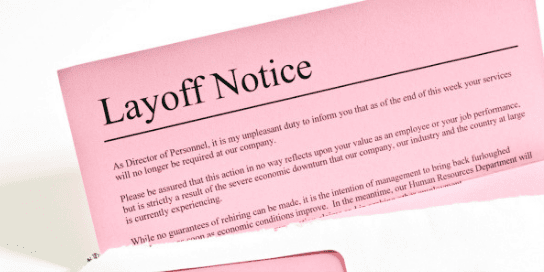Did you pay too much in taxes this year?
If you’re a high-income skilled professional with W2 income, you’ve probably noticed that you pay a lot in taxes each year. You may have also felt like you owed more this year, due to the withholding changes associated with the Tax Cut and Jobs Act.
You may be wondering, “Did I miss something?”
Beyond the basics:
Taking full advantage of your 401(k)
The maximum contribution in 2019, for an employee is $19,000. If you’re over age 50, the catch-up provision is $6,000. However, consider the following:
- Do you have a Roth 401(k) option?
- Do you know whether you should save more in the Roth or a traditional 401(k)?
- Do you run tax projections of your tax rates today versus what they could be in the future? So does is a Roth 401(k) or a traditional 401(k) better in your situation today?
- If you don’t have a 401(k) Roth option, how can you check with your employer to make sure you can max out the total 401(k) contribution by you and your employer combined?
- If you’re under age 50, the total is $56,000, and if you’re over 50, it’s $62,000. You may be able to contribute more beyond your personal contribution maximum of $19,000 and the amount matched by your employer. Can you do it in your plan? If so, how?
- If you are a small business LLC electing to file as an S-Corporation, are you still using a SEP or SIMPLE IRA? Maybe your CPA or financial advisor told you a 401(k) is too difficult to manage, costs too much, or because it’s too complicated with extra tax forms, it’s not worth it. Maybe that’s not true. Maybe using a SEP or SIMPLE IRA is (probably) costing you a lot more money.
Taking full advantage of all your IRAs
Are you over the Roth IRA adjusted gross income limit and can’t contribute? You sure?
- Do you know how to find out if you and your spouse can still get money into a Roth IRA, even if you earn over the $203,000 adjusted gross income limit? If you and your spouse both maxed these out over the next subsequent ten years, how much more money could you have in Roth IRAs? Tax-free money?
- What if tax rates increase in the future, might more tax-free buckets of money be important to you?
- Does your spouse stay at home? Or, is your spouse starting a business that’s not turning a profit yet? Or, are they between jobs? Did you forget that you most likely can still make a contribution for them, even if they are not working, based on your income?
- Even one $5,500 contribution in a traditional IRA at the 32% marginal tax bracket is $1,760 in tax savings.
- Remember, even If you make too much for a direct Roth contribution, you still may be able to get money into a Roth IRA for your spouse. How?
Taking full advantage of your Health Savings Account
- You may feel you need a low-deductible plan. It feels safer: Monthly premiums are lower than the high-deductible plan if “something happens,” right?
- Most of the time, it’s not the case. You pay more in two ways: higher premiums, and no Health Savings Account availability.
- Don’t forget, this is the only account you can get all three common tax benefits from: a up-front tax deduction for contributions, investment growth tax-deferred, and tax-free (qualified) withdrawals.
- If your family uses an HSA, the maximum $7,000 contribution at a 32% marginal tax bracket equals $2,240 more in tax savings
- Let’s clear up some common questions:
- Yes, there’s no income limits for contributions;
- Yes, the account is portable if you leave your employer;
- Yes, it’s not a “use-it-or-loose-it” account. The unused balance rolls over at the end of the year;
- Yes, if you don’t use it now, you could use it for Cobra insurance, and Medicare premiums for Part B, C, and D (when you’re over 65).
Taking full advantage of our state 529 plan
- Colorado has a 4.63% flat-tax rate, so even saving $200 a month, over a year, for your child/grandchild/yourself/spouse or other family member is still another $111 you don’t pay in state taxes.
- Are you or your adult child missing out on the matching grant program? You could contribute up to $500 per kid (up to 5 years) and get a $500 matching grant. That’s $2,500 in grant money you don’t pay back that you’d get over the next five years.
- You contribute up to the match at work on your 401(k), right?! So why not contribute up to the grant-match for your kids? Check to see if you qualify.
- Are you running a business (even a business of one)? Does your business receive a tax credit for contributing to the Colorado 529 plan? Did you sign up?
- You’d get a 20% tax credit up to your $2,500 in contributions per year. That’s $500 in tax savings, for contributing a little over $200 a month.
- Even if you have employees, you can just set it up for yourself; no need to offer it to everyone.
- You’d get a 20% tax credit up to your $2,500 in contributions per year. That’s $500 in tax savings, for contributing a little over $200 a month.
No whole life insurance
If you think you’re saving money in a “tax-free” way, (please) think again:
- Would you be upset if you discovered it can take over 10 years to break even in these whole life policies? A decade before you start making money over the costs of insurance and commission you paid. Is that okay?
- Would you be upset if you knew the “advisor” who sold it to you could’ve made 85% to 90% in commissions on your first year’s premium?
- Would you be upset to find out that you could be paying more taxes today by using whole life insurance at the expense of other retirement and investment account alternatives? Maybe your taxes are higher today than in retirement when you plan to use “tax-free” loans?
- Would you be upset if you understood that the dividend rate is not really the realized rate of return you earn? That many “projections” or “illustrations” are littered with so many assumptions and footnotes that they don’t mirror reality?
- Would you be upset to know you might be able to use other lower-cost options that are better alternatives?
Accelerating your mortgage payments
- What risks and trade-offs could you consider with this? If you paid-off your mortgage, would you lose the benefit of having your mortgage interest deduction for itemizing your deductions above the standard deduction amount? Do you know the amortization schedule of your mortgage today to see when it might make sense to pay it off from a tax standpoint?
- Of course, the opportunity cost of investing versus an accelerated mortgage paydown is not a free ride. Returns are not guaranteed, but which is better for you, based on your situation?
- What percentage of your net worth is liquid or in real estate? Is your home really an “investment,” or do you think, just because you live in Colorado real estate prices can only go up?
- If you don’t pay it off faster, do you have a disciplined and systematic way to invest extra cashflow each month, or are you worried you’ll spend it?
Charitable giving
- Do your monthly contributions to your favorite causes help you itemize your deductions over the standard amount each year?
- If not, why not look at strategies to donate money to your favorite cause and actually get a deduction doing it?
- Did you get a larger influx of bonuses or compensation this year than normal? Could you bunch contributions to a donor-advised fund, and have these combined contributions take you over the standard deduction limit? Are there risks in your situation to do this?
- If not, why not look at strategies to donate money to your favorite cause and actually get a deduction doing it?
Colorado state tax breaks
- Did you review all the state income deductions, and credits within the code? Can you position yourself to create a long-term strategy or take advantage of them next year?
- If fewer than 8% of all Coloradans took advantage of all Colorado state tax credits, in 2016, were you one of them?
Passive losses from real estate
- Do you own a direct real estate rental? Could you qualify next year to use up to $25,000 in passive losses against your earned income. Like your W2 compensation?
There’s (many) more:
- Do you know how to target years to sell stock when you are in the zero percent capital gains rate?
- Do you know how to look at partial roth conversions in lower tax years (sabbaticals, layoffs, lower bonuses, when you might start a business) versus what’s projected in the future?
- Do you have deferred compensation plans at work, stock options, and other ways to reshape when and how you are compensated?
- Do you know which accounts to make withdrawals from with unconventional requests, or beginning financial independence, and I could keep going, but…
Can I tell you something you don’t want to hear?
In the end, you’re only going to be able to deduct so much from your income as a high-income W2 worker. You are (likely) paying too much in taxes (sorry), but it doesn’t have to be this way.
There’s three other ways to stop paying so much in taxes and build real wealth:
(1) business ownership, (2) direct real estate investments, and (3) a diversified tax-efficient portfolio.
Do you own a seller-expert lifestyle business that makes the highest and best use of your skill set without just buying another job?
- Are you undervaluing yourself? Do you work long hours in something you dislike, or that takes you away from your spouse and kids? A job where you could get fired tomorrow? Are you using your personal competitive advantage where no one can compete with you? Do you know how to market it? Sell it?
- Are you working long hours in your small business, and not making enough money for all the stress, and time away from your family? Do you constantly look at the revenue your business is making, but fail to neglect or understand how much you really make?
- Is there a better way than just buying another job and trading your time again?
Do you own a prudent amount of direct real estate investments?
- Where and how can you buy today in a real estate market that presents way more risk than opportunity in Colorado?
- Are you okay asking for advice from brokers that are incentivized to sell you properties that could lose you money? Kind of like advisors with incentives to just sell you another high commission product?
- If you own investment properties today, what’s the review process to look at selling your rentals?
- What objective and quantitative analysis could you do?
- What specific numbers matter in your personal situation? Taxes? Cashflow? Valuations? How do you measure your after-tax returns against other investment alternatives? Are you really earning what you think once you take into account your time?
Do you own a diversified portfolio that creates freedom for you?
- No, not Acorn, RobinHood, or other Silicon Valley phone apps selling you out to high-frequency traders for poor execution that costs you (alot) more than “free,” where some make (intentional) mistakes with regulators that hoodwink their app users.
- No, not fast-food financial planning in 1-800 call center cubicles putting you in pie graphs, answering with call-center compliant say this only scripts, and fill-in-the-blank calculators with 500 to 1,000 “clients.” Are you okay being just another number on a hold cue recorded line passed from cubical to cubical?
- No, not RoboAdvisors that get fined by the SEC for making fake tax-loss claims. Does it feel ethical that some don’t live up to their hyped up marketing?
- No, not private capital investments with high fees and verbal promises of return panacea. Does it worry you that you really don’t understand how these strategies really make money? Could they create return nightmares in the next recession?
I’m talking about a way to stop making easy investment mistakes (that experienced investors still make).
Like, do you still think making systematic investments (dollar-cost averaging) versus a lump sum investment is a better way to earn a higher rate of return? Two-thirds of the time, it’s not. Do you think stocks are risky, maybe the largest risk is avoiding them in earlier years when a longer time horizon leads to better outcomes.
Do you:
- Stay disciplined each year with tax-loss harvesting, where taxable accounts could gain (potentially) another 0.26% to 0.88% in returns?
- Over-diversify or overcomplicate your portfolio unknowingly with more fees, less returns, and an illusion of safety?
- Under-diversify, or chase what’s hot because of what you saw an asset class returned last year?
- Exclusively invest for high dividends, yield, or “income plays” that might cost you a lot more in taxes, or lead to poor investment returns and higher risk?
- Think you can “time” the markets through newsletters, trading software, or technical analysis “rules”?
- Listen to “experts” on CNBC for stock picks?
What if…A financial professional…
Could actually provide tangible value (like above) in your personal situation?
Define and reach your goals faster, so you don’t waste time?
Help you enjoy your marriage more with better improved communication around money? Save you time to spend with your kids?
Help you create a business, or dial in the one you have to work for you instead of being a slave to it?
Hold you accountable when life get’s “busy,” so you don’t miss out on life opportunities, make silly financial mistakes, or give up on your dreams?
Provide yes-this-guy-really-knows-me beyond the numbers personalized service?
And deliver rigorously written personalized specific technical recommendations beyond some software print-off?
Maybe you’re ready? If so, let’s stop reading investing books and blogs, talking to high-commission sales people or call-centers, or waiting for everything to be perfect. It won’t ever be.
Let’s do something about it!
Maybe I know a guy






